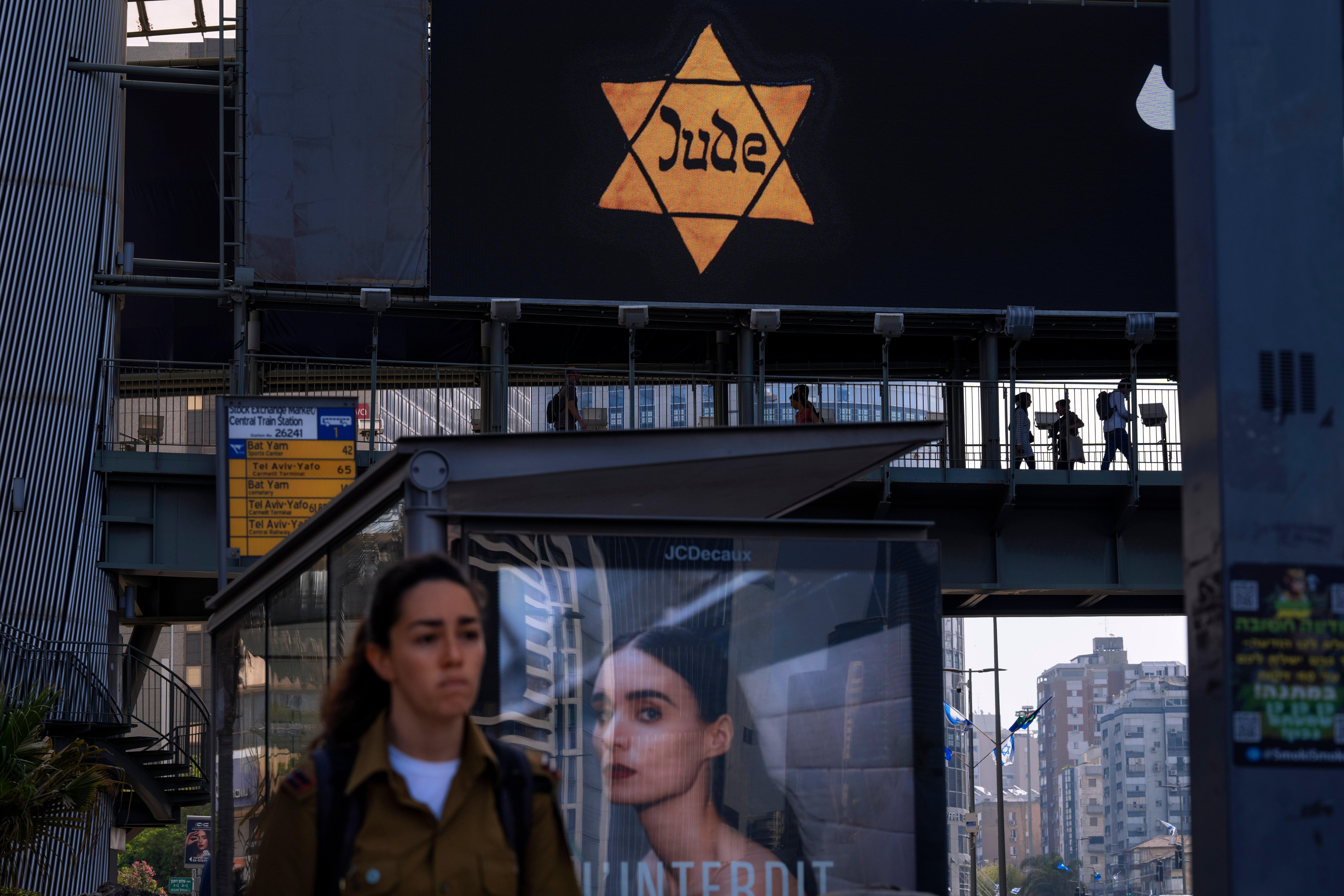Israel lashes out at Russia over Lavrov's Nazism remarks
Israel has summoned the Russian ambassador over comments made by the Russian foreign minister about Nazism and antisemitism

Your support helps us to tell the story
From reproductive rights to climate change to Big Tech, The Independent is on the ground when the story is developing. Whether it's investigating the financials of Elon Musk's pro-Trump PAC or producing our latest documentary, 'The A Word', which shines a light on the American women fighting for reproductive rights, we know how important it is to parse out the facts from the messaging.
At such a critical moment in US history, we need reporters on the ground. Your donation allows us to keep sending journalists to speak to both sides of the story.
The Independent is trusted by Americans across the entire political spectrum. And unlike many other quality news outlets, we choose not to lock Americans out of our reporting and analysis with paywalls. We believe quality journalism should be available to everyone, paid for by those who can afford it.
Your support makes all the difference.Israel on Monday lashed out at Russia over “unforgivable” comments by its foreign minister about Nazism and antisemitism — including claims that Adolf Hitler was Jewish. Israel, which summoned the Russian ambassador in response, said the remarks blamed Jews for their own murder in the Holocaust.
It was a steep decline in the ties between the two countries at a time when Israel has sought to stake out a neutral position between Russia and Ukraine and remain in Russia’s good stead for its security needs in the Middle East.
Asked about Russia's efforts to “denazify” Ukraine in an interview with an Italian news channel, Sergey Lavrov explained that Ukraine could still have Nazi elements even if some figures, including the country’s president were Jewish. “Hitler also had Jewish origins, so it doesn’t mean anything,” he said, according to an Italian translation.
In some of the harshest remarks since the start of the war in Ukraine, Israeli Foreign Minister Yair Lapid called Lavrov's statement “unforgivable and scandalous and a horrible historical error.”
“The Jews did not murder themselves in the Holocaust,” Lapid said. “The lowest level of racism against Jews is to blame Jews themselves for antisemitism.”
Israel’s Holocaust memorial Yad Vashem called the remarks “absurd, delusional, dangerous and deserving of condemnation.”
“Lavrov is propagating the inversion of the Holocaust — turning the victims into the criminals on the basis of promoting a completely unfounded claim that Hitler was of Jewish descent,” it said in a statement.
“Equally serious is calling the Ukrainians in general, and President (Volodymyr) Zelenskyy in particular, Nazis. This, among other things, is a complete distortion of the history and an affront to the victims of Nazism.”
Nazism has featured prominently in Russia’s war aims and narrative as it fights in Ukraine. In his bid to legitimize the war to Russian citizens, President Vladimir Putin has portrayed the battle as a struggle against Nazis in Ukraine, even though the country has a democratically elected government and a Jewish president whose relatives were killed in the Holocaust.
World War II, in which the Soviet Union lost an estimated 27 million people and helped defeat Nazi Germany, is a linchpin of Russia’s national identity. Repeatedly reaching for the historical narrative that places Russia as a savior against evil forces has helped the Kremlin rally Russians around the war.
For Israel, the Holocaust is central to its national ethos and it has positioned itself at the center of global efforts to remember the Holocaust and combat anti-Semitism.
But those aims sometimes clash with its other national interests. Russia has a military presence in neighboring Syria, and Israel, which carries out frequent strikes on enemy targets in the country, relies on Russia for security coordination there. That has forced Israel to tread lightly in its criticism of the war in Ukraine.
While it has sent humanitarian aid to Ukraine and expressed support for its people, Israel has been measured in its criticism of Russia and has not joined international sanctions against it. That paved the way for Prime Minister Naftali Bennett to be able to try to mediate between the sides, an effort which appears to have stalled as Israel deals with its own internal unrest.
The Holocaust and the constant manipulation of its history during the conflict has sparked outrage in Israel before.
In a speech to Israeli legislators in March, Zelenskyy compared Russia’s invasion of his country to the actions of Nazi Germany, accusing Putin of trying to carry out a “final solution” against Ukraine. The comparisons drew an angry condemnation from Yad Vashem, which said Zelenskyy was trivializing the Holocaust.
___
Associated Press writer Nicole Winfield in Rome contributed to this report.